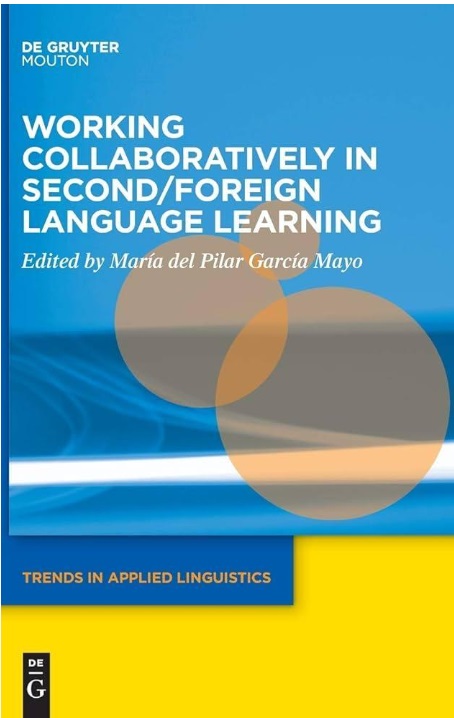Back to Blog
Book Review Reflection: Working Collaboratively in Second/Foreign Language Learning Edited by Maria del Pilar Garcia Mayo
03/15/2024
Michelle Skowbo
Book Review Reflection: Working Collaboratively in Second/Foreign Language Learning
There are seven chapters that address collaborative writing in the language classroom Specific areas of focus are how collaborative writing supports language acquisition, how it influences learner motivation, how it impacts learners’ strategy adoption, how learner interaction guides writing production, how computer-based writing supports learning when done in groups. Each of these specific areas offer research studies conducted with different learner aged groups across different learning contexts and countries.
The other three chapters examine the effectiveness and efficiency of using collaboration in form-focused tasks and L2 pragmatic development and the impact of mixed aged learners in collaborative working groups.
Each chapter offers a broad and rich array of literature around collaborative language learning, expanding and/or enhancing the readers’ knowledge of work in this area of foreign language acquisition. Each of the studies shared offer solid academic research that can serve as models to replicate as appropriate to expand the body of work on this area at a time when collaborative writing and interaction to complete tasks is increasingly supported by technology advances.
The text is a highly relevant compilation of work that can be read as a book from cover to cover for professional development, selectively examining particular chapters that offer relevant insight based on a reader’s task or interest, and can be beneficial as a text in an academic course.
References
Vygotsky, L. S. (1978). Mind in Society: The Development of Higher Psychological Processes. Harvard University.
Michelle Skowbo
Book Review Reflection: Working Collaboratively in Second/Foreign Language Learning
Edited by Maria del Pilar Garcia Mayo
By Kara Mac Donald
This book begins by sharing how collaborative language learning is supported and situated within research on cognitive and social cultural aspects of learning. In particular, Vygotsky’s (1978) work on learning being socially mediated. The editor then shares nine researchers’ work in favor of collaborative learning. This initial chapter lays the foundation for the following ten chapters authored by different individuals addressing different aspects of implementing collaborative learning in the language classroom.
There are seven chapters that address collaborative writing in the language classroom Specific areas of focus are how collaborative writing supports language acquisition, how it influences learner motivation, how it impacts learners’ strategy adoption, how learner interaction guides writing production, how computer-based writing supports learning when done in groups. Each of these specific areas offer research studies conducted with different learner aged groups across different learning contexts and countries.
The other three chapters examine the effectiveness and efficiency of using collaboration in form-focused tasks and L2 pragmatic development and the impact of mixed aged learners in collaborative working groups.
Each chapter offers a broad and rich array of literature around collaborative language learning, expanding and/or enhancing the readers’ knowledge of work in this area of foreign language acquisition. Each of the studies shared offer solid academic research that can serve as models to replicate as appropriate to expand the body of work on this area at a time when collaborative writing and interaction to complete tasks is increasingly supported by technology advances.
The text is a highly relevant compilation of work that can be read as a book from cover to cover for professional development, selectively examining particular chapters that offer relevant insight based on a reader’s task or interest, and can be beneficial as a text in an academic course.
References
Vygotsky, L. S. (1978). Mind in Society: The Development of Higher Psychological Processes. Harvard University.
